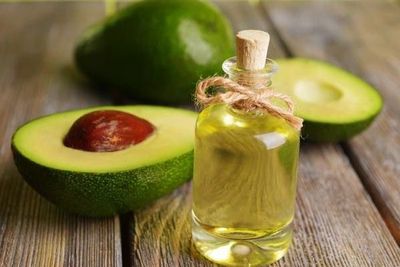Many people think all fats are bad, but that's far from the truth.
"Fat has a bad reputation," says registered dietitian Bonnie Taub-Dix, owner of BTD Nutrition in New York City. Because of that, bringing fat back to the plate is a complex issue for our "fat phobic" nation, she says.
Our bodies need dietary fats to function; they supply energy to help our bodies run well. As an example, fats play a role in exercise metabolism: When you exercise, your body uses carbohydrates to keep it going for the first 20 minutes and then switches to getting energy from stored fat.
Your body also needs fat to help it absorb important and valuable nutrients found in vegetables, like lycopene and beta-carotene, as well as vitamins A, D, E and K (sometimes referred to as fat-soluble vitamins). That's why eating a salad with a little fat—as in an oil-based dressing—makes the salad's nutrition be all it can be.
But there are fats … and there are fats. And because some can be helpful while others can potentially harm your health, it's important to know the difference.
According to a recent survey by the International Food Information Council Foundation, 3 in 10 Americans have recently changed their opinions about the healthfulness of saturated fats, with the majority now believing it's less healthful. That's progress, but at the same time, many reported limiting or avoiding mono- and polyunsaturated fatty acids. Those are the healthful types we should be consuming more of—not abstaining from.
Confusion still reigns, so it's time to spill the beans on fat. Consumers are slowly coming around to realize that fat is an important part of their diet—particularly what Taub-Dix calls "fats with benefits."
Here are some healthy oils you might not know about:
1. Avocado oil
High in monounsaturated fats, this oil is sometimes referred to as "vegetable butter" or "butter pear," and that's with good reason. The fruit, which originated in Central America, has a high oil content. The extraction method, similar to olive oil extraction, yields an oil high in oleic acid and healthy monounsaturated fatty acids. Its high smoke point makes it good for frying. It conveys a grassy and butter/mushroom-like flavor.
2. Grapeseed oil
Pressed from the seed of grapes, this oil has a clean, light taste and is rich in polyunsaturated fats. It also contains a small amount of vitamin E and is great to use in salad dressings, dips and soups.
3. Sesame oil
The strong nutritional profile of the sesame seed transfers into its benefits as an oil (high in both monounsaturated and polyunsaturated fats) because the seed is high in copper, manganese, calcium and magnesium, plus other vitamins and minerals. The oil has a mild, nutty flavor; refined versions can be used for cooking with high heat; unrefined are best for marinades.
4. Walnut oil
Made from nuts that are dried, then cold-pressed, this oil contains polyunsaturated fats and has a rich, nutty flavor and a high level of heart-friendly alpha-linoleic acid (which partially converts to omega-3 fatty acids). A diet rich in walnuts and walnut oil may help your body deal better with stress, researchers find, because it can influence blood pressure both at rest and during stressful times. The oil is also rich in manganese and copper and melatonin, which help regulate your body's internal clock.
Store your oils away from heat, light, moisture and air, all factors that can change the oil's quality and accelerate its spoilage. If you store them in a kitchen cabinet, be careful that it's not located over the stove or refrigerator. If you use oil infrequently, it can be stored in the refrigerator, which will help prolong its freshness.
And don't forget that even though they're healthy, oils still contain calories—about 120 per tablespoon for most.
"If you're going to include healthy fats with your meals, you need to remember they should take the place of less healthy options," says Taub-Dix. "If not, then adding them could also add unwanted pounds."
Read More:
15 Heart-Healthy Foods You Should Be Eating


